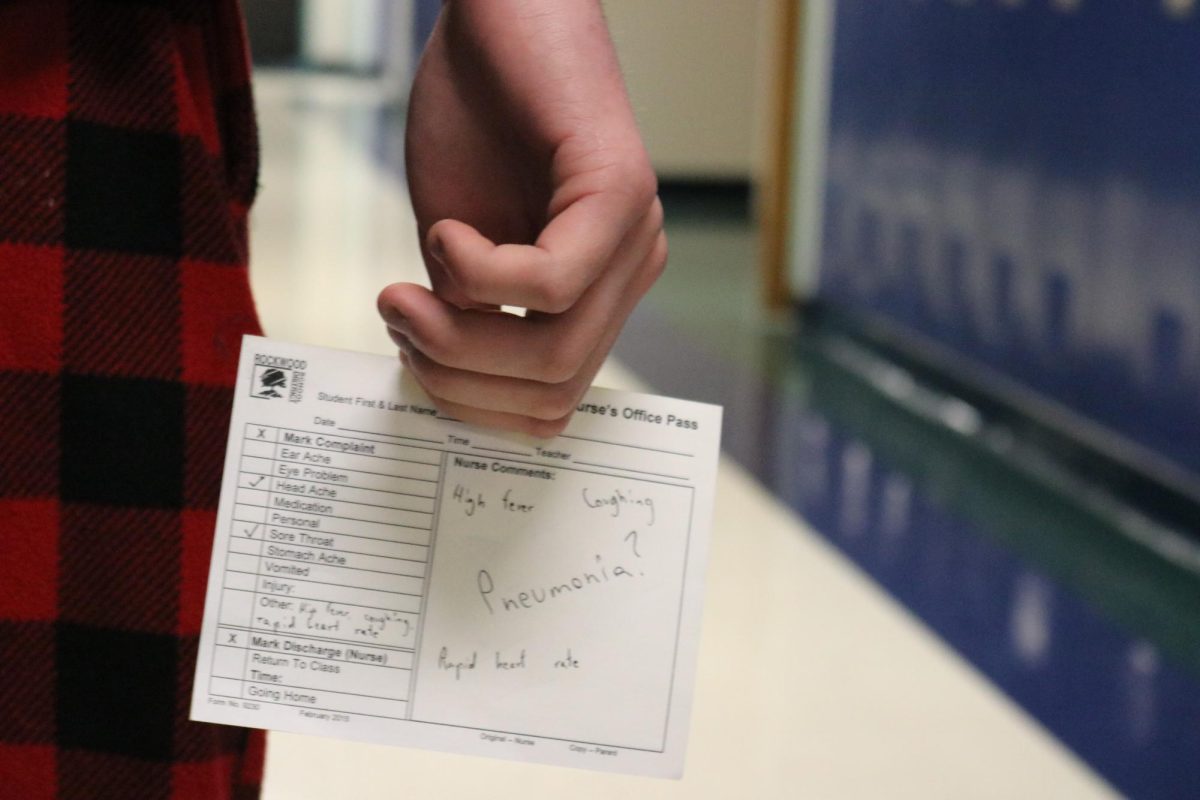After having a cough for two weeks, Maggie McGinn, senior, realized her sickness was greater than a common cold.
“I just was not feeling well, my cough just got worse and worse and there was some wheezing in there,” McGinn said.
After going to the doctor, McGinn was diagnosed with pneumonia and prescribed antibiotics as treatment.
In October, the CDC reported increased numbers nationally of respiratory infections like pneumonia due to the bacteria mycoplasma pneumoniae. This trend has been observed within the district as well.
Amy Wehr, district supervisor of wellness and health services, said she has never experienced an increase in pneumonia cases like there has been this year.
Since the increase in October, Wehr said the situation isn’t as worrying, as of Thursday, Dec. 5.
“We are also going to be seeing more influenza, just based on the time of year and holiday gatherings, which can lead to pneumonia in some,” Wehr said.
When district nurses alerted Wehr of a pneumonia increase in early September, she checked the CDC website for information about pneumonia trends nationally. Wehr then contacted health officials from the St. Louis County Department of Public Health and asked if there was anything the district could do to help keep students healthy.
In early November, nurses sent out a ParentSquare message about a rise in cases and how to avoid developing it.
McGinn said after she got sick, she became more aware of how many of her classmates weren’t in class due to illness.
“I would definitely say go to the doctor earlier because I just got more sick without the right medicine,” McGinn said.
She said she had walking pneumonia, which her doctor said was less contagious and severe.
Clayton Elmy, anatomy & physiology teacher, said walking pneumonia is an informal term for a mild case of pneumonia.
“Regular pneumonia would just be a more severe version of that, where typically there’s so much fluid in your lungs that you can’t even breathe, or you have very labored breathing so you couldn’t even walk,” Elmy said.
Elmy said the coughing that accompanies pneumonia is caused by an infection at the alveoli, small air sacs within the lungs where oxygen and CO2 exchange occurs. The alveoli are filled with a pus or a fluid because of an infection of lung tissue in the body.
“Trouble breathing is going to be a big one, so like wheezing or shortness of breath, because the lungs are not able to absorb and move as much gas as normal,” Elmy said.
Elmy said misdiagnosed or undiagnosed pneumonia due to it being “walking pneumonia” or seen as the common cold are likely contributors to the increase in respiratory infection cases.






